In addition to Weibo, there is also WeChat
Please pay attention

WeChat public account
AutoBeta


2024-11-22 Update From: AutoBeta autobeta NAV: AutoBeta > News >
Share
AutoBeta(AutoBeta.net)10/27 Report--
On October 26th, Ford announced its withdrawal from the Russian market by formally selling its 49 per cent stake in its Russian joint venture, Sollers Ford, on its website. It is reported that Ford shares will be transferred to the joint venture at face value, and Ford reserves the option to buy back shares within five years if the global situation changes.
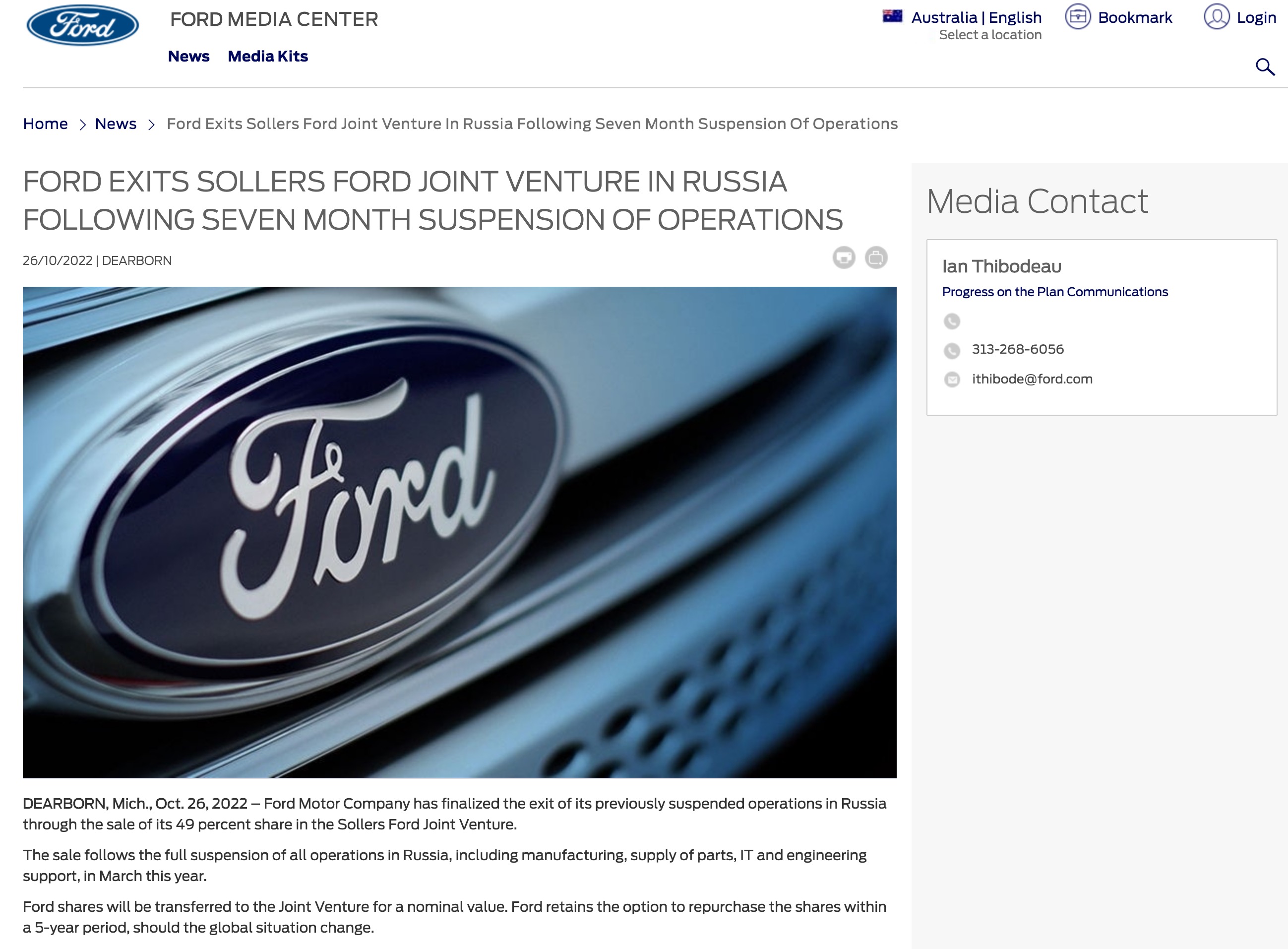
Ford is the first international carmaker to achieve local production in Russia, opening a factory in St. Petersburg in 2002. On October 1st, Ford and Russia's Sollers announced the formation of a joint venture called Ford Sollers, each with a 50% stake in the joint venture. The joint venture will build factories to produce cars in the St. Petersburg (St.Petersberg) region and the Republic of Tartarstan, and will be responsible for producing, importing and selling all Ford brand products, including cars, parts and accessories, in Russia. It is understood that Ford's Russian factory has an annual production capacity of 360000 vehicles and produces models including Fox, Mondeo, Yibo, Carnival, and pterygos and explorers, of which the Fosevorzhsk plant mainly produces Fox and Mondeo models. Cherney-upon-Kama assembly plant mainly produces carnival and wingfight.
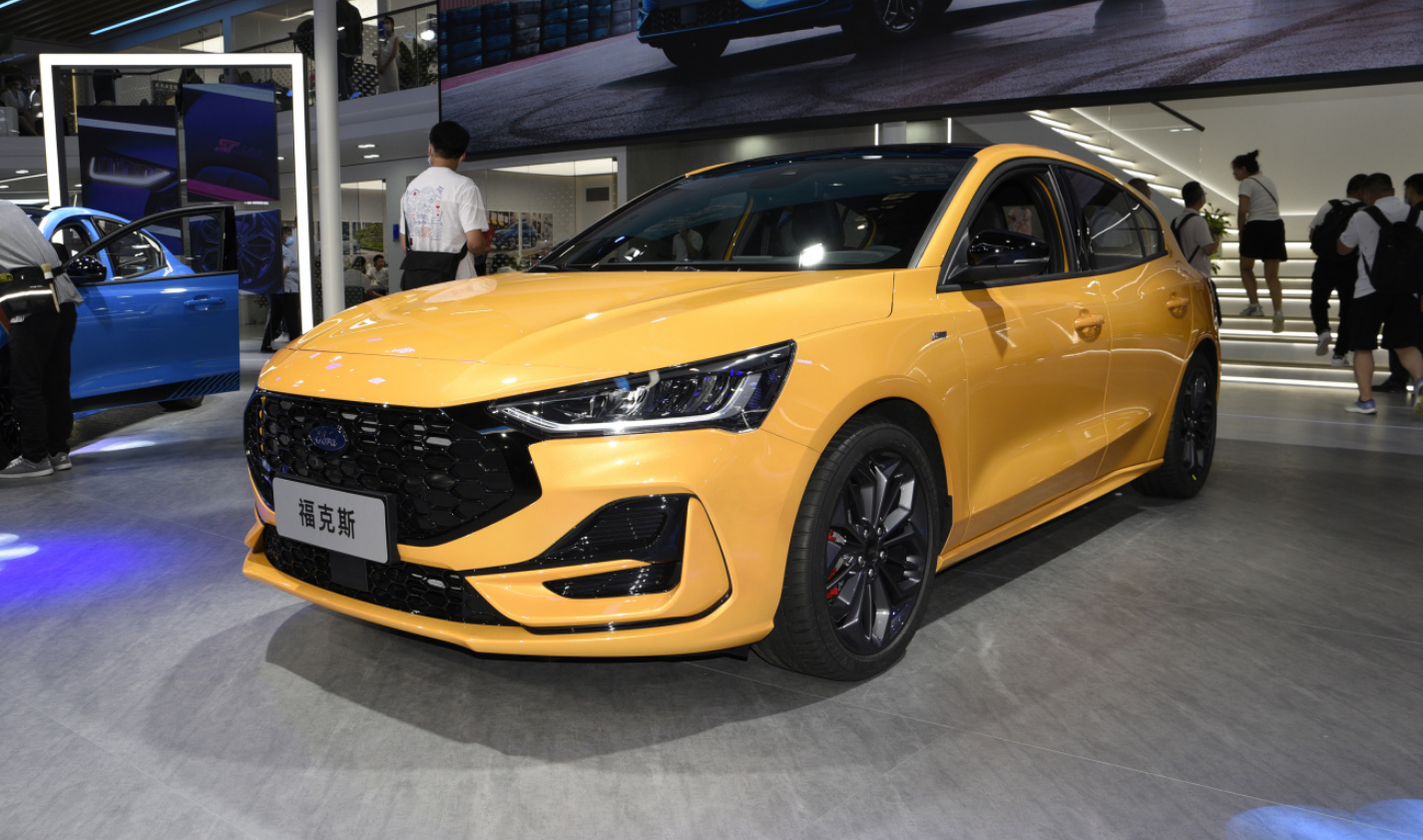
Ford Sollers, a joint venture in Russia, will close two assembly plants and an engine plant in Russia, and Ford will gradually withdraw from the Russian passenger car market, Ford and Russia Solos said in a statement on March 27th, 2019. On July 1, 2019, Sollers of Russia acquired control of the joint venture (51%) and officially changed its name to Sollers Ford on October 1, 2020.
In March, when the conflict broke out between Russia and Ukraine, Ford suspended all operations in Russia, including manufacturing, parts supply, IT and engineering support. Ford is re-evaluating its business in Russia, Ford said in a statement. At that time, Ford said, "We will suspend our operations in Russia until further notice." However, like other carmakers, car production and operation activities failed to restart in the end as regional conflicts intensified.
In addition to Ford, Mercedes-Benz also plans to withdraw from the Russian market. Mercedes-Benz disclosed in its third-quarter report on October 26th that it plans to sell its industrial and financial services subsidiary to Avtodom, Russia's largest car dealer, due to the intensification of the conflict between Russia and Ukraine, but that the deal needs to be approved by all relevant departments.
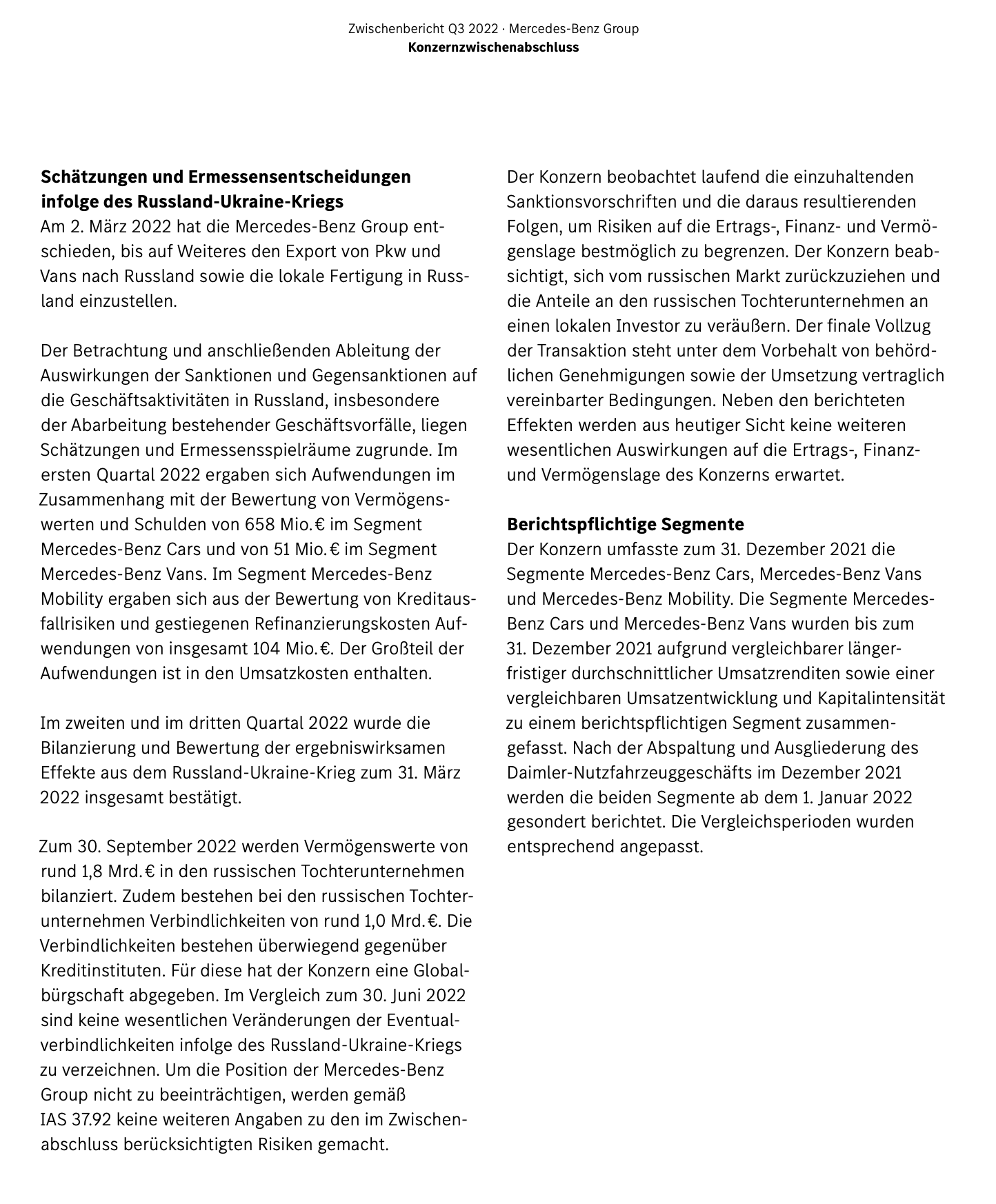
A spokesman for Mercedes-Benz said the uncertainty of the Russian business environment was the decisive factor in the company's decision to withdraw from the Russian market, but he declined to disclose details of the deal. Mercedes-Benz, which has 1.8 billion euros in assets and 1 billion euros in liabilities in Russia, has suffered 709 million euros in losses related to its Russian business so far this year, according to Mercedes-Benz's third-quarter financial report. It did not comment on the potential price of the sale. "the main priority for agreeing to the terms of the deal is to maximize obligations to Russian customers, including after-sales and financial services, as well as to retain the company's employees working in the Russian division," Mercedes-Benz CEO Natalia Koroleva said in a statement.
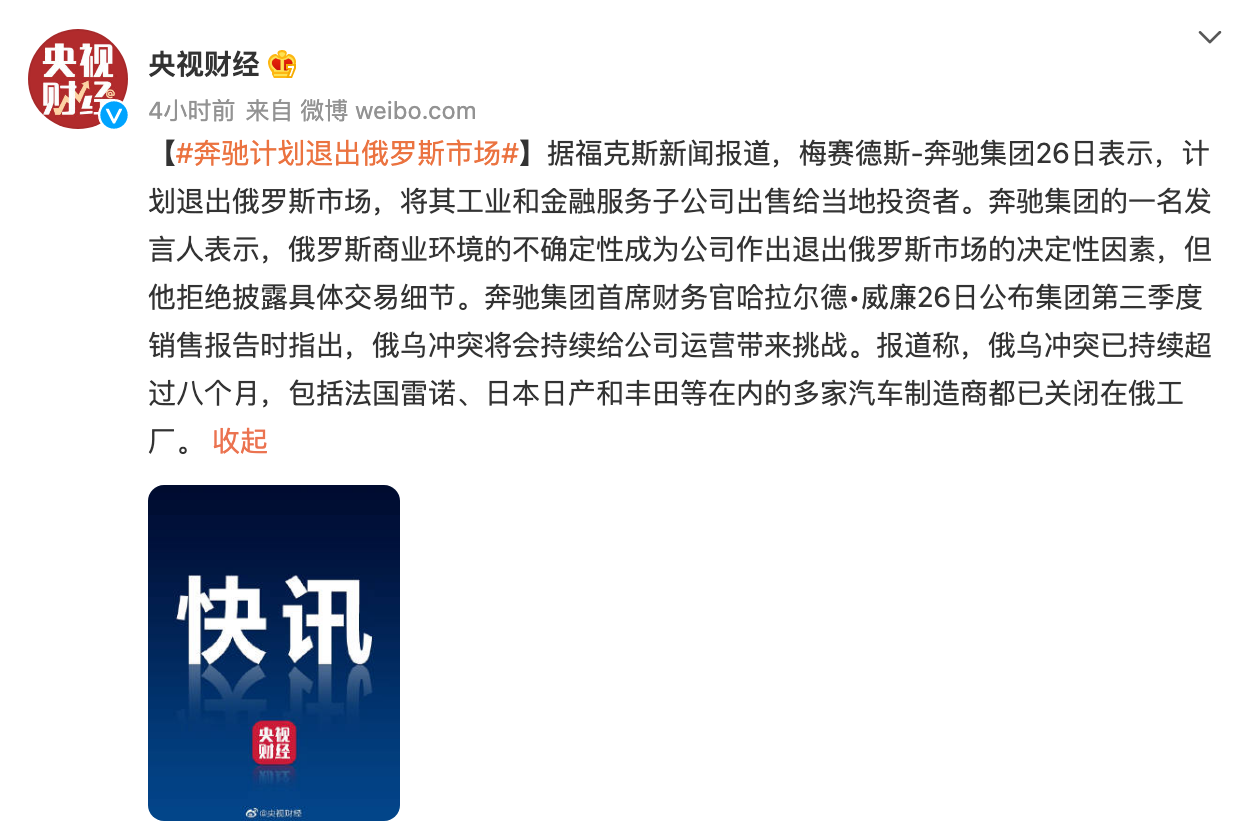
Since the Russia-Ukraine incident, many automakers have completely abandoned this huge market and stopped daily sales in Russia. On may 16th, Renault announced its withdrawal from Russia, agreeing to sell its entire stake in Renault Russia to the Moscow municipal government and its 67.69% stake in AvtoVAZ to NAMI, a Russian government-backed automotive research and development center.
On Sept. 23, Toyota withdrew from Russia, and Toyota Motor Co., Ltd. and Toyota Europe have decided to permanently terminate their car manufacturing operations at their plant in St. Petersburg, Russia, a move that means Toyota will stop production in Russia.
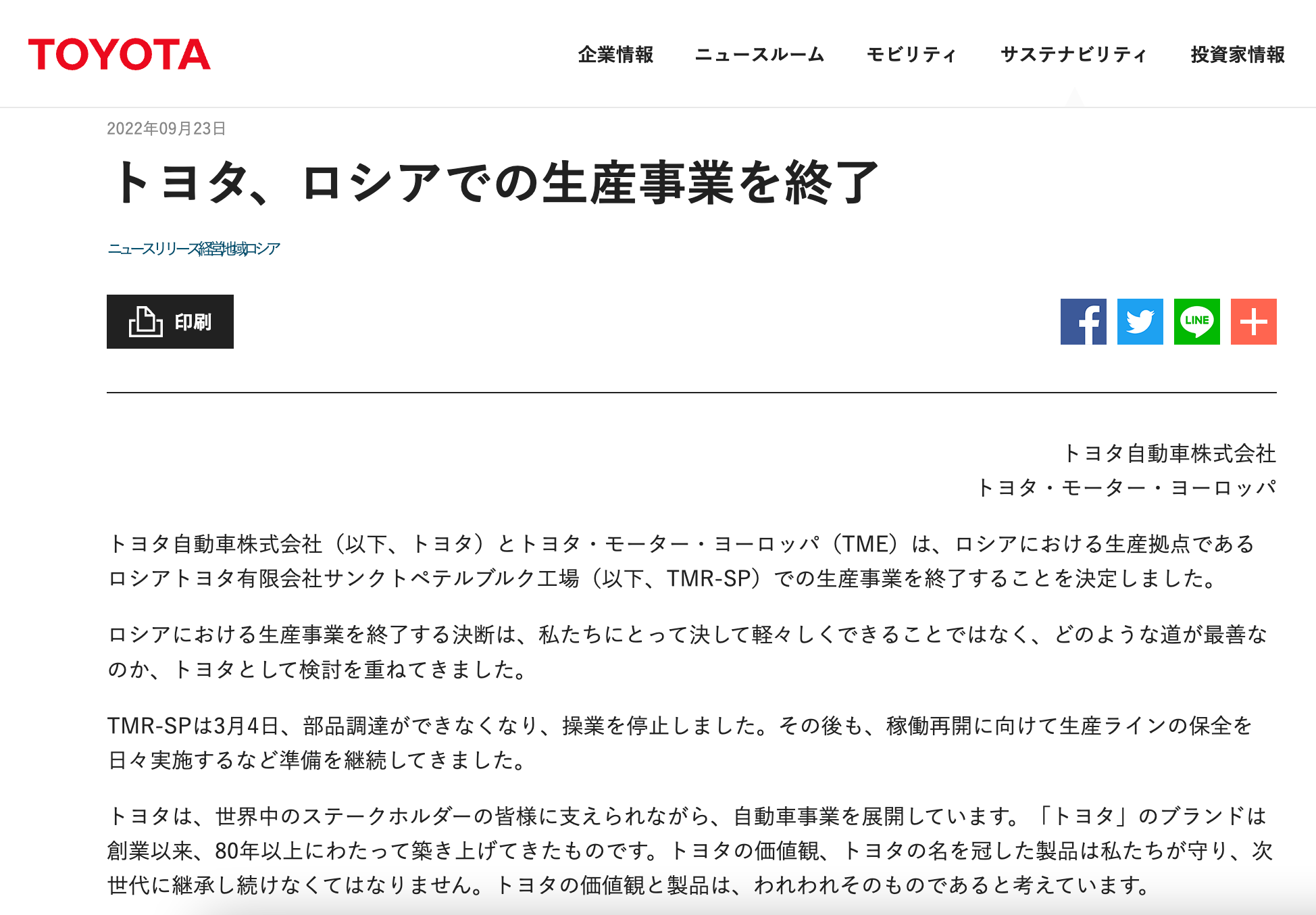
On Oct. 12, Nissan announced that it would withdraw from Russia, and all its local operations of its Russian company would be sold to the Russian Institute of Automotive and Automotive engine Science, a move that would cost the company 100 billion yen. Nissan said all shares in its Russian subsidiary would be resold to the Moscow-based Central Research and Development Automotive engine Research Institute (NAMI) for future passenger car projects.
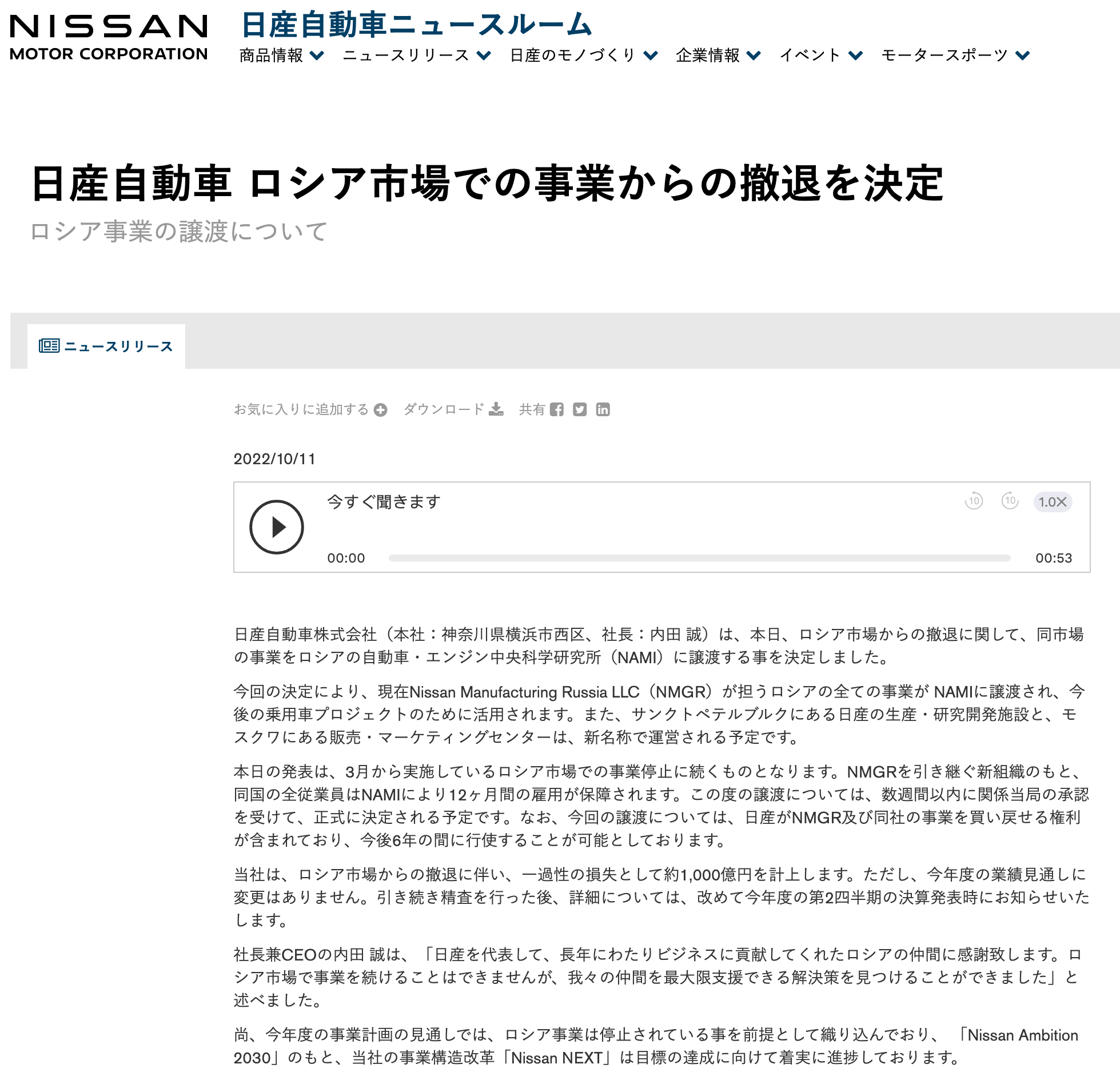
Under the conflict between Russia and Ukraine, French, Japanese and Korean brands that had completed their layout in the Russian auto market had to withdraw, including Ford, GM, BMW, Volkswagen, Porsche, Mercedes-Benz and other German and American brands announced to stop production and sales in Russia. Renault, which once accounted for nearly 10% of the Russian car market, took the lead, followed by Toyota, Nissan and Ford, while Mazda, Volkswagen and Mercedes-Benz also planned to sell their assets in Russia. Data show that Russian car sales fell 59.6 per cent in September 2022 from a year earlier to 46698 units, and cumulative sales in the first three quarters fell 59.8 per cent to 506661 vehicles. In the future, if the situation in Russia and Ukraine cannot be alleviated, more and more enterprises will announce their withdrawal or become the norm.
Welcome to subscribe to the WeChat public account "Automotive Industry Focus" to get the first-hand insider information on the automotive industry and talk about things in the automotive circle. Welcome to break the news! WeChat ID autoWechat
Views: 0
*The comments in the above article only represent the author's personal views and do not represent the views and positions of this website. If you have more insights, please feel free to contribute and share.





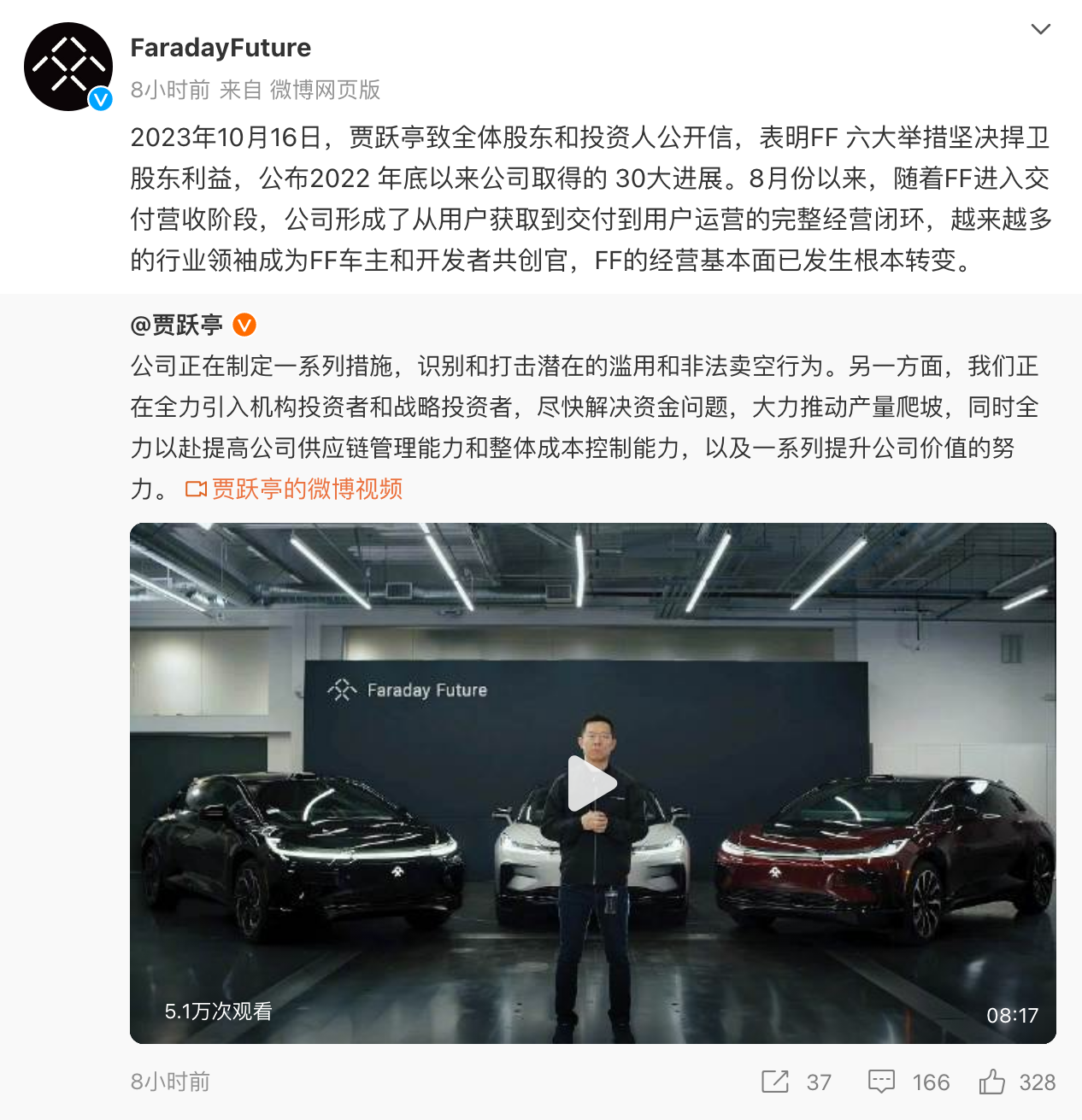


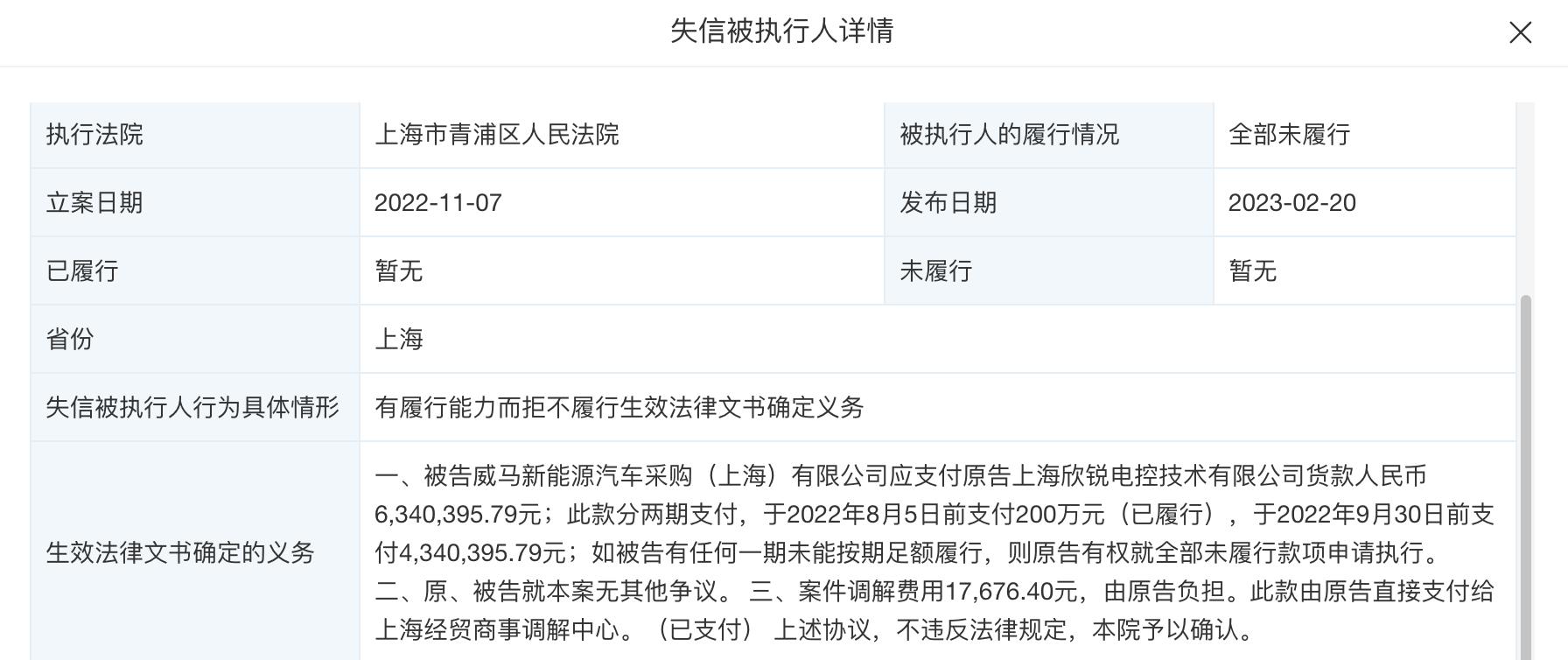


© 2024 AutoBeta.Net Tiger Media Company. All rights reserved.